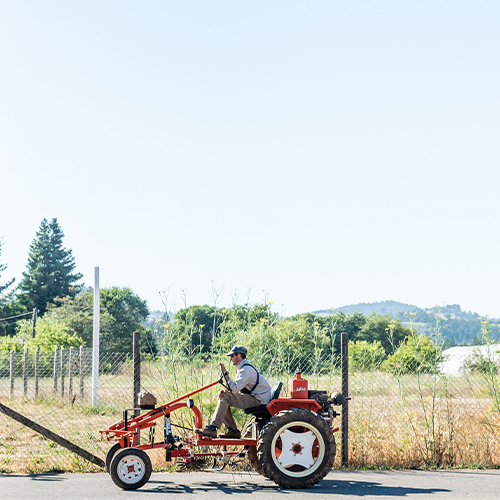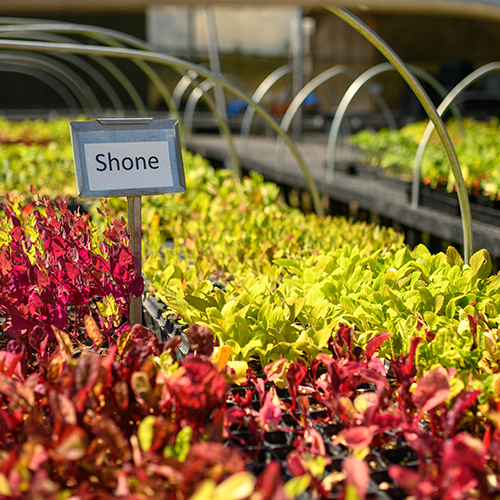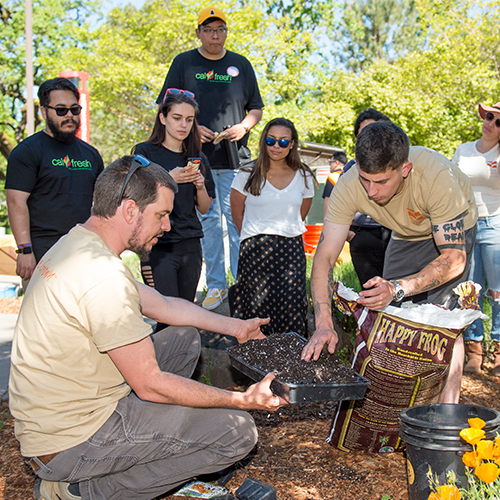WELCOME TO SUSTAINABLE AGRICULTURE AT SRJC!
Known for its abundance of organic farms, world class vineyards and wine, artisan food producers, great soil and mild climate, Sonoma County is one of California’s most desirable agricultural areas. The Sustainable Agriculture Program at SRJC reflects this rich farming legacy.
At the forefront of sustainable farming practices, SRJC’s Sustainable Agriculture Program recognizes the significance and opportunities of organic and sustainable agricultural production in today’s growing marketplace. Santa Rosa Junior College is one of the few California Community Colleges that offers an Associate in Science Degree and two certificates in sustainable agriculture.
Graduates are in demand now more than ever as entrepreneurs, innovative problem solvers, and producers of premium niche products. The curriculum’s relevance is enhanced by faculty who are experts in the field, with input from an active industry advisory committee.
INSTRUCTION AND HANDS-ON LEARNING
SRJC's Sustainable Agriculture classes give students a foundation in plant and soil science, integrated pest management, diverse crop production, and direct marketing strategies while focusing on the ecological underpinnings of agriculture. Courses emphasize the “how-to” aspects of organic farming and gardening, including tillage, compost production, crop planning and production. Specialty areas include: organic viticulture, specialty crops for the culinary market, organic apple and olive production, sustainable landscapes, and direct farm-marketing. Students also have the unique opportunity to gain experience setting up and managing a community-supported agriculture (CSA) system. There's even a class on how to drive tractors!
Most Sustainable Agriculture courses are held at Shone Farm, SRJC’s 365 acre outdoor lab, near Forestville. In addition to classroom instruction, students have the opportunity for real-world direct marketing experience through involvement in the Shone Farm CSA (Community Supported Agriculture) program, and through a weekly on-campus farm stand held during the growing season. Students can also participate in student enterprise projects, learning how to grow, market, and distribute an agriculture product of their own choosing.


